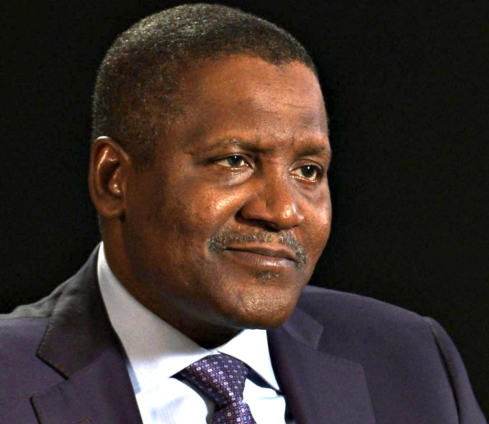There are 54 countries in Africa. More than 20 produce oil and five of these countries are part of the world’s 30 oil-producing countries.
However, only two countries in Africa do not import oil.
In 2019 Africa accounted for more than 7.9 million barrels per day, which is about 9.6 per cent of global output.
Between 2005 and 2010, however, oil production in Africa rose to nearly 10 million barrels per day.
Speaking on Sunday, June 18, at the opening of the 30th Anniversary of the Afreximbank Annual Meetings in Accra, Ghana, the businessman, Aliko Dangote, pointed out that even though there are oil-producing countries on the continent, only two countries, Algeria and Libya, do not import oil.
Dangote who was speaking about the importance of free movement and intra-Africa trade, said: “We are importing poverty and exporting jobs.” He said that in relation to the fact that African countries continue to export raw materials.
He also expressed concern about the difficulty of travelling around the continent.
He said he has an African passport and should be able to travel around, but there are two countries that for some reason do not recognise the African passport.
According to Dangote, Nigeria produces about six million tons of urea and therefore, Africa should not be seeking to import fertilizer from outside the continent.
Dangote shared his experience on how his company started producing cement for local consumption and export, as well as opening factories in other countries and urged the establishment of local domestic.
In his welcome address, the Governor of the Bank of Ghana, Dr Ernest Addison gave tribute to Afreximbank.
He said since its establishment three decades ago, Afreximbank has transitioned into a first-class supranational financial institution, championing African trade and driving growth across multiple sectors in Africa.
“Evidence of the bank’s interventions are numerous and includes infrastructural investments to support intra-African trade, investments in agriculture and industry, trade facilitation, trade guarantee and advisory services, and country-specific programmes to support those in dire economic situations, among others,” he said.
Latest Stories
-
GAFOSC in commanding form ahead of decisive UG Corporate League clash
20 minutes -
99% of NPP Council members backed early presidential primary – Justin Kodua
22 minutes -
Ablekuma North collation: Police playing funny games with us – NPP
32 minutes -
Education Ministry orders nationwide audit over poor quality of SHS meals
35 minutes -
Visa delays due to logistical failures by US Postal Service – Ablakwa
36 minutes -
Two suspected robbers lynched, two arrested in Bosome Freho after fatal attack
40 minutes -
Pan-Africanists strengthen case for reparations from colonial masters
41 minutes -
Gov’t suspends NSA’s portal for posting personnel over ghost names scandal
47 minutes -
Michael Blackson and fiancée Rada Darling welcome son ‘Lil Mikey’
55 minutes -
Ablekuma North Collation: NDC is frustrating the process – Justin Kodua
58 minutes -
Justin Kodua explains why NPP is holding early presidential primary for 2028 election
1 hour -
Adutwum declares intent to run for NPP 2028 flagbearership race
1 hour -
Shirley Frimpong-Manso bemoans Ghana’s hype for Tyler Perry’s ‘Straw’
1 hour -
Two arraigned for alleged illegal gold trade
1 hour -
PUSAG condemns withholding of National Service PIN Codes, demands urgent redress for affected students
1 hour

